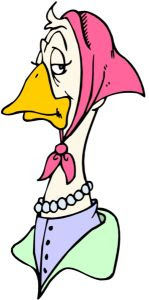
I have been extremely enjoying Practical Journalism sessions about News Agenda we have had for the last couple of weeks. Having in depth analysis of different types of newspapers was very interesting and gave me an idea of how they are really created and put together to attract readers’ attention. Our task for the last session was to make a presentation on News Agenda of given newspaper and radio station. My presentation was based on Daily Echo and BBC Radio 4. We were also asked to contact the marketing departments of the selected newspapers and radio stations obtain their advertising rates and the claims they make about the size and nature of their audiences. Luckily, Hana did the same thing as me, which was good enough as we could communicate and discuss both newspaper and radio station together. We decided to ring the advertising departments together (as we both had to do it anyway). I shall not talk about the most embarrassing thing that we did... Or shall I? I always knew that BBC advertise their own programmes to inform the audience about what’s coming next on the show, but thinking that, we didn’t realise that they didn’t carry any other adverts.. oops.. Silly geese we are- Or as I would say it- silly mooes, but it is just Justina’s Phrase- not commonly used by many people, but let’s not go into this now.
Anyway, I shall put my written analysis on News Agenda for BBC radio 4 and The Daily Echo
BANG

The Daily Echo is a local newspaper that covers the area of south-central Hampshire, including the city of Southampton. The newspaper's main offices are in the Redbridge area of Southampton, with district offices in Eastleigh, Winchester and Lymington. It is owned and published by Newsquest, which is the second largest publisher of local newspapers in the United Kingdom. They publish more than 300 newspapers, including 17 dailies.
The newspaper is politically neutral. It doesn’t really cover any political matters or Parliament issues and it doesn’t support any political party. The politicians are not the main aspects of news, in contrast to BBC Radio 4 news. An exception for this point is one of the sections of The Daily Echo’s news agenda called ‘Your views’, which contains reader’s stories and views. Gordon Brown is a very recent inspiration of public desire to write a short article for this local newspaper. Other than that- the newspaper doesn’t contain political global message. It, however, takes up affairs relative to the region they write about.
The Daily Echo’s major aspire is to bring an unbiased view of the latest, up-to-the minute news and sport from Southampton, Hampshire and The Saints. The main features covered in the newspaper are related to the local public, such as a story about five missing turkeys in Twyford or ‘a lucky Southampton hairdresser’ going off to Hollywood after winning tickets to see a movie. However, there are also more serious, worldwide features covered in news agenda, such as an educative story about the Polish death camp, Auschwitz. (Saturday, November 14, 2009, p.22) I believe it is extremely essential for everyone to know a little about the world’s history, especially this one, as it was probably the most horrific place of terror in the history of the world.
The target audience for the Daily Echo is very various. It includes both, men and women as well as children, teenagers and mostly families living in Southampton area, who are associated with the newspaper. It is conveyed through the variety of adverts on the front cover in a newspaper, such as on Friday 13th of November, the front cover included Wheels- motor section for men. An advert containing a chance of winning a trip to London for Christmas shopping tempts women audience to buy a copy. There is also an advert of fun, full of laugher pantomime called ‘Santa Clause and the return of Jack Frost’, which suggests an entertaining event for children and the whole family. The rate card shows that 51% of readers are men and 49% are women. The (almost) equality suggests that the reporters try to cover all different aspects of entertainment, including true, fascinating stories which will interest everybody.

BBC Radio Four is a UK radio station which broadcasts a large collection of spoken-word programmes. This includes news, drama, comedy, science and history features. Many of their slots are discussion based, centred around politics or arts.
One of the most significant things I noticed when analysing BBC Radio Four was the lack of music. This is probably the most influential factor on its target audience and demographics. Music is an important part of most people’s lives, as it a major way of entertaining and will tend to listen to the show playing their preferred style of music. BBC Radio Four hardly ever play music and when they do it is very specific to the particular topic being covered at the time. It is always old or classical. This suggests that you would only regularly listen for the discussions and topics they cover-a less educated person would have no need or desire to listen to the majority of topics covered on Radio Four.
The station has many topics geared towards a more mature audience. This is very apparent through all different time periods of BBC Radio Four. All the presenters possess that stereotypical accent of an educated person with the majority of their target audience being educated to certain standard. For example, on Saturday morning, the 14th of November, John McCarthy appears to talk to Jan Morris, who has been travelling and writing about her journeys for more than 50 years. John McCarthy talks to her about some of the individuals she has came across all over the world in that half century - rich and poor, renowned and obscure, friendly and unwelcoming. They reflected on the nature of travel and whether it is more about places or people. The conversation went on for 30 minutes.
The demographics of the radio are precise. My point about saying that is that regions with larger lower class communities and young people would not listen to BBC Radio Four. These sorts of areas tend to have people doing general industry jobs or not working at all. Statistics has shown these sorts of people listen to local radio stations, or stations which tend to play lots of music rather than discussion based more political stations.
All news is based around Politics, government, politicians and army. They tend to talk about The Guardian newspaper quite often, as well. I believe that having national and international in depth reporting, intelligent analysis and major breaking news from a global perspective is a fantastic business as it allows the target audience to enlarge. I would say this programme is good for immigrants as they can hear worldwide news rather than just the ones from the UK.












